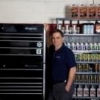Coolant Exchanger For Sale
-
Have you checked out Joe's Latest Blog?
-
By Joe Marconi in Joe's Blog5 commentsI recently spoke with a friend of mine who owns a large general repair shop in the Midwest. His father founded the business in 1975. He was telling me that although he’s busy, he’s also very frustrated. When I probed him more about his frustrations, he said that it’s hard to find qualified technicians. My friend employs four technicians and is looking to hire two more. I then asked him, “How long does a technician last working for you.” He looked puzzled and replied, “I never really thought about that, but I can tell that except for one tech, most technicians don’t last working for me longer than a few years.”
Judging from personal experience as a shop owner and from what I know about the auto repair industry, I can tell you that other than a few exceptions, the turnover rate for technicians in our industry is too high. This makes me think, do we have a technician shortage or a retention problem? Have we done the best we can over the decades to provide great pay plans, benefits packages, great work environments, and the right culture to ensure that the techs we have stay with us?
Finding and hiring qualified automotive technicians is not a new phenomenon. This problem has been around for as long as I can remember. While we do need to attract people to our industry and provide the necessary training and mentorship, we also need to focus on retention. Having a revolving door and needing to hire techs every few years or so costs your company money. Big money! And that revolving door may be a sign of an even bigger issue: poor leadership, and poor employee management skills.
Here’s one more thing to consider, for the most part, technicians don’t leave one job to start a new career, they leave one shop as a technician to become a technician at another shop. The reasons why they leave can be debated, but there is one fact that we cannot deny, people don’t quit the company they work for, they usually leave because of the boss or manager they work for.
Put yourselves in the shoes of your employees. Do you have a workplace that communicates, “We appreciate you and want you to stay!”
-
-
Similar Topics
-
By Hands On
Hi folks. A quick search and I did not see any recent alignment machine posts. I have a quote from Hunter, $86,000 includes a scissor life and the concrete work to flush mount it, shipping, the machine with wall mount cameras. Some accessories. If I do conservatively 3 alignments a week my break even is approx 4.5 years, a bit longer depending on financing cost.
I lease my shop, and one of my biggest fears has been getting kicked out of here. Should I be looking at obtaining a location instead? I am always nervous about taking on the massive cost of a bigger building, especially when I struggle so often to hire good people. I talked to a friend that went from a small shop like I have to a larger facility and he said it was a lot more headaches with very little increase in income. I want less headaches, less stress.
Maybe it is my small shop that makes it hard to hire? Is this the right time to try to get a new location? How do I even start finding financing, I do not have a ton of cash saved up right now. Should I get the alignment machine now, and continue to save up for a new location? How much do I need down for a new spot? Should I keep my eye open for other shops that might fail in the coming year and hold off on the alignment machine and continue to stack cash? I am kind of tired of loosing an employee for 30 minutes to an hour to run an alignment across town that may or may not get done to the same quality standards I hold my employees to.
-
By Joe Marconi
Premium Member Content
This content is hidden to guests, one of the benefits of a paid membership. Please login or register to view this content.
-
By Joe Marconi
Premium Member Content
This content is hidden to guests, one of the benefits of a paid membership. Please login or register to view this content.

-
By Junior
Looking to sell a hunter RM 8000 lb alignment rack I have, with Model 611 alignment machine. Its loaded up on a trailer and ready to go, will deliver in the Hudson Valley area if you have a way to unload it. Asking $6,000 for the whole setup.
-
-
-
Our Sponsors





.thumb.jpg.2b345efc275b9df0af2bbb306a10a78a.jpg)










Recommended Posts
Create an account or sign in to comment
You need to be a member in order to leave a comment
Create an account
Sign up for a new account in our community. It's easy!
Register a new accountSign in
Already have an account? Sign in here.
Sign In Now